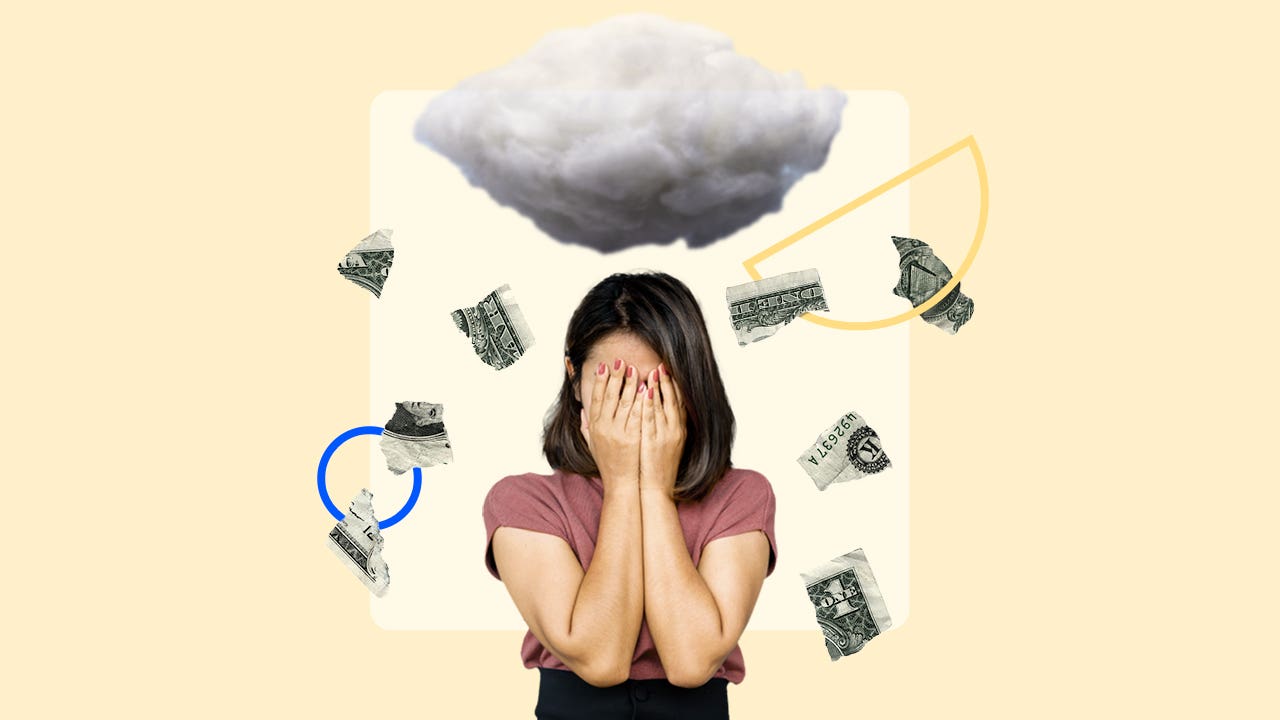
Pictures by Getty Pictures; Illustration by Hunter Newton/Bankrate
When the Federal Reserve first began elevating rates of interest to chill inflation, the U.S. economic system getting into a recession appeared a foregone conclusion to the nation’s prime specialists. However quarter after quarter, unemployment held at a historic low, jobs remained plentiful and shoppers saved spending — serving to the monetary system obtain what was thought of unthinkable.
The percentages of the U.S. economic system getting into a recession throughout the subsequent 12 months have now fallen to a two-year low of 33 p.c, in response to Bankrate’s newest quarterly economists’ ballot. That’s after hovering as excessive as 65 p.c again within the third quarter of 2022 and falling to a couple of coin-flip by the ultimate six months of 2023.
To make sure, solely as soon as has the Fed managed to boost rates of interest and defeat inflation with out inflicting a recession, suggesting the chances are nonetheless not within the U.S. central financial institution’s favor. Many economists additionally acknowledge that, much more doubtless than the economic system fully avoiding a downturn, is the timing of the following one getting pushed again.
Shoppers ought to put together for a recession when it looks like nothing can convey the U.S. economic system down, leveraging their secure paychecks and a high-yield financial savings account to construct their emergency fund.
Momentum is predicted to stay intact for the foreseeable future, with the nation’s unemployment price remaining comparatively low, offering a typically strong setting for people and households to perform their monetary targets.
— Mark Hamrick, Bankrate Senior Financial Analyst
Key insights on the economic system from Bankrate’s Q1 2024 Financial Indicator ballot
Economists hold pushing again their recession forecasts
Respondents put the chances of the U.S. economic system getting into a recession throughout the subsequent 12 months from as excessive as 90 p.c to as little as 0 p.c — the bottom since Bankrate started polling economists on their recession forecasts. It’s additionally the primary time because the third quarter of 2023 that no economist indicated they have been completely sure of a recession, penciling in 100% odds.
The engine of financial progress is shopper spending, which picked up in February after a post-holiday spending spree stoop in January, Division of Commerce knowledge confirmed. However the basis for consumption is the job market, the place unemployment has held beneath 4 p.c for the longest interval because the Sixties.
That’s whilst shopper costs cooled from a staggering peak of 9.1 p.c to the latest stage of three.2 p.c. Sometimes, economists are taught within the early days of their career that unemployment and inflation have an inverse relationship. When one goes down, the opposite ought to usually head up.
“A tender touchdown is probably going as financial situations gently cool and inflation step by step reverts to the Fed’s 2 p.c goal,” says Gregory Daco, chief economist at EY. “Noisy financial knowledge in the beginning of the yr has made the outlook tougher to evaluate. Chopping by means of the noise, the financial image hasn’t modified a lot.”
Final March, Fed officers thought the U.S. economic system would develop simply 0.4 p.c between the fourth quarters of 2022 and 2023. As a substitute, the monetary system ended up increasing a strong 3.1 p.c. The resilient streak is predicted to proceed within the first quarter of 2024, with the Atlanta Fed’s GDPNow tracker estimating 2.8 p.c progress.
The final word query is whether or not inflation can proceed step by step retreating again to 2 p.c and not using a broader financial slowdown. One issue that would have a double-edged sword: strong wage progress. One estimate from the Atlanta Fed suggests paychecks are nonetheless rising at a tempo not seen because the 2000s. That might assist hold the U.S. economic system on strong floor, however companies might additionally resolve to cross alongside these greater bills to clients in the event that they don’t have elevated output or productiveness to indicate for it.
It doesn’t matter what, recessions are simply as unpredictable as they’re inevitable. Economists additionally level out continued dangers with geopolitical tensions overseas, comparable to within the Center East, the place battle might additional exacerbate vitality or oil costs.
“Geopolitical considerations are more likely to enhance over the following yr, elevating questions on inflation and provide chains,” says Joel Naroff, president at Naroff Economics. “That might hold the Fed ‘greater for longer’ than even presently anticipated.”
Right here’s what the nation’s prime economists are saying in regards to the U.S. economic system’s odds of a recession
The chance of recession stays elevated and can keep that approach so long as Fed financial coverage stays in restrictive territory. Even so, the danger has diminished in latest months on the resilience of the financial and monetary knowledge.
— Scott Anderson | Chief U.S. economist at BMO Capital Markets
The economic system will probably be more and more prone to a draw back shock, because the growth matures and because the stimulative impact of prior fiscal coverage wears off.
— Mike Englund | Chief economist at Motion Economics
(I count on) sluggish progress however not a recession. The inventory market is unlikely to maintain rising, given the already elevated price-earnings ratio, and can maintain again a number of the wealth impact of shopper spending. House worth progress will probably be muted, additionally hindering the wealth impact. All of the whereas, these not proudly owning properties are tapped out, with COVID financial savings principally depleted.
— Lawrence Yun | Chief Economist on the Nationwide Affiliation of Realtors





